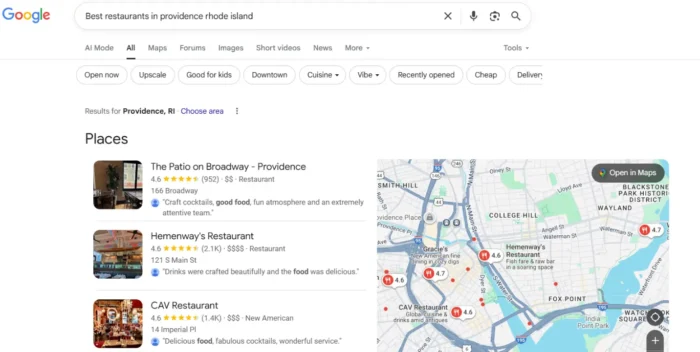Exxon’s new Gulf of Mexico leases aren’t what they seem
An offshore oil well platform in the Gulf of Mexico off Grand Isle, Louisiana, U.S., on Wednesday, April 21, 2021. | Luke Sharrett/Bloomberg via Getty ImagesExxonMobil’s spending spree during yesterday’s lease sale in the Gulf of Mexico was significant,...

ExxonMobil’s spending spree during yesterday’s lease sale in the Gulf of Mexico was significant, experts say, because the company might use the area for something other than oil and gas extraction. Experts outside the company speculate that ExxonMobil wants to use Gulf waters for a novel purpose: sequestering captured carbon dioxide.
The Biden administration auctioned off vast tracts of the Gulf of Mexico to oil and gas companies yesterday in one of the largest federal lease sales in recent years. The sale drew sharp criticism from environmental groups, which say that allowing new oil and gas development is incompatible with America meeting its climate goals. But it’s possible that Exxon — the biggest bidder in yesterday’s sale — isn’t planning on extracting new fossil fuels at all. The company surprised analysts by bidding on almost 100 leases in shallow waters close to shore where fossil fuel reserves are pretty depleted. That likely means that Exxon plans to repurpose old oil and gas wells for carbon storage, or find new places in the area to pump captured CO2 underground, experts tell The Verge.
“There’s just not enough oil to make the bang for the buck worth it for them,” says Brian Snyder, an assistant professor of environmental sciences at Louisiana State University.
William Turner, a lead analyst at energy research firm Rystad Energy, agreed, calling the lease areas “the equivalent of [Exxon] buying up a kind of mom and pop operation.”
“This has to be for something other than oil and gas exploration,” Turner says.
ExxonMobil has yet to confirm or deny the speculation. In an email to The Verge, a spokesperson for the company said Exxon would “evaluate the seismic and subsurface geology for future commercial potential.”
If experts’ hunches are right, this would likely mark the first time that the government has leased federal waters for carbon sequestration.
Fossil fuel companies have sold carbon capture and sequestration (CCS) as a way to minimize the harm they do to the planet. The strategy entails using new technologies to scrub planet-heating CO2 out of smokestack emissions. The captured carbon dioxide then needs to be transported via pipelines to places where it can be stored underground.
The Gulf of Mexico’s seafloor could become a hotspot for carbon sequestration because of its proximity to a lot of heavy industry and existing oil and gas infrastructure. Experts have suggested captured CO2 might be pumped into old oil and gas fields in the Gulf or injected into saline aquifers.
ExxonMobil has called CCS part of its “ongoing efforts to reduce emissions.” This year, the company announced plans to turn the Houston Ship Channel into a sort of hub for CCS. The channel connects Houston to the Gulf of Mexico and is lined with petrochemical plants and other heavy industries. The plan could entail pairing those plants with CO2 scrubbers, and then piping the captured carbon dioxide out to the Gulf. By 2040, the hub could capture up to 100 million metric tons of CO2 a year, Exxon says. Such an effort would require a joint investment from industry and government, according to ExxonMobil — to the tune of $100 billion.
High costs like this have historically been a prohibiting factor with carbon capture projects; they’re what closed the only coal plant outfitted with CCS in the US. But some new funding could become available through the bipartisan infrastructure bill that Joe Biden signed into law this week, which includes billions of dollars of investments in carbon capture and removal technologies and pipelines with a focus on so-called ‘hard-to-decarbonize’ industries like cement and fertilizer production.
Many people are, unsurprisingly, wary of fossil fuel companies’ claims about CCS. Environmentalists and progressive lawmakers have called CCS a “false solution” for climate change, saying that it could derail a transition to renewable energy and keep the economy dependent on oil and gas. Scientists agree that greenhouse gas emissions need to essentially disappear by the middle of the century in order to avoid catastrophic climate change, and that can only be achieved by weaning economies off fossil fuels.
“This industry has seen the Gulf as its own personal sewer for a long time, so the idea that they would turn to the Gulf for this project is unsurprising,” says Carroll Muffett, president and CEO of the nonprofit Center for International Environmental Law. “It’s also unacceptable because the risks of carbon capture and storage are significant,” he says. He’s worried about how construction and potential ruptures of new CO2 pipelines might affect Gulf Coast communities. High concentrations of carbon dioxide, if it leaks out of pipelines or storage wells, can be an asphyxiant to people and wildlife.
Another concern with CCS is that it has traditionally been used by the oil and gas industry for what’s called “enhanced oil recovery” (EOR). Basically, fossil fuel companies shoot the captured CO2 underground to push out hard-to-reach oil reserves.
“That would be my concern, that Exxon is actually doing this not just for storage, but for EOR,” Snyder says. “My guess is they’re actually doing a little of both.”
The Biden administration has already faced a lot of criticism for selling federal water leases to oil and gas companies just days after calling on all nations to slash greenhouse gas emissions during a United Nations climate summit in Glasgow. The lease sale was set in motion by the Trump administration, and a Trump-appointed federal judge blocked an executive order by Biden earlier this year to suspend new oil and gas leases. Still, environmentalists argue that Biden could have done more to stop yesterday’s sale.
But while the Biden administration might not have wanted to hold the lease sale, if ExxonMobil is in fact planning to store captured CO2 in the Gulf, that could change the administration’s calculus.
“You could hypothesize with this, that maybe this gets the attention of the administration to say ‘Okay, maybe we need to rethink completely shutting down new leasing,’” Turner says.

 Koichiko
Koichiko 
































